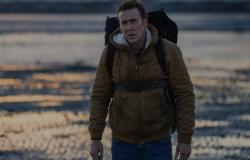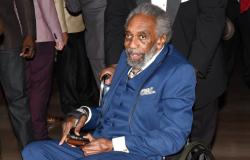We had already talked about the numerous inaccuracies contained in the interview book The successor created by the Spanish journalist Javier Martinez-Brocal with Francesco. In the previews that emerged on the occasion of the release of the Spanish edition, one could see a rather far-fetched reconstruction of the 2005 conclave, showing even the Argentine Pope still evidently convinced that two thirds of the electors’ votes were needed for the election of his predecessor when instead in Universi Dominici gregis John Paul II had abolished that rule by opting for an absolute majority after 34 ballots.
Coinciding with the release of the Italian edition published by Marsilio, The Republic has published a further extract which highlights the unreliability of what is read in the book. The Pope recalls his first meeting with Benedict XVI after the 2013 election and focuses on the moment in which, in Castel Gandolfo, he was given the documents of the investigation into the first Vatileaks carried out by cardinals Julian Herranz, Jozef Tomko, and Salvatore De Giorgi.
Martinez-Brocal, who is a Vatican correspondent by profession for everyday life ABC and for television The Sixth, and therefore he should have a vague memory of the most media-relevant scandal relating to the Holy See in recent years, reports without batting an eyelid a sensational papal blunder. The Spanish journalist, referring to the first Vatileaks case involving Paolo Gabriele in 2012, asks the Pope: «I have the impression that the Vatileaks scandal included two cases: on the one hand, the butler who, after having stolen the confidential documents, had them filtered to the press, on the other the “malfunctions” of the Curia. One day will we know how it really went?”. Bergoglio replies: «There was a real clique involved. There were those who maneuvered, those who deceived… Among the victims there was also the then Cardinal Pietro Parolin, they wanted to prevent his appointment as Secretary of State”.
The response makes it clear that the Pope, during the conversation, falls into a misunderstanding but the journalist not only doesn’t point it out to him personally, but during the revision he seems to have taken that reconstruction as valid and puts it as it is in the book. In fact, the first Vatileaks referred to in the dialogue and which led to the investigation of the three cardinals broke out in May 2012, with Benedict XVI still reigning. At the time Pietro Parolin, indicated as the victim of that plot, was not yet a cardinal but only apostolic nuncio to Venezuela. There was no nomination of the Venetian prelate at the helm of the Secretariat of State which at that time continued to be in the hands of Cardinal Tarcisio Bertone. Even in the hypothesis of a replacement of the latter in the last pontificate, always rejected by Benedict XVI despite the requests of many in the Curia, the name of Parolin had never filtered among the possible successors. The former nuncio to Venezuela was chosen by the new Pope in August 2013, long after the maneuvers of the so-called Vatican crows in the first months of 2012 and with a conclave in between.
Therefore, it is clear that there is no connection between the first Vatileaks in the question and the alleged attempts to prevent Parolin’s nomination as Secretary of State in the answer. It is no wonder that Francesco, an 87-year-old man with some health problems, is confused by facts and dates from more than ten years ago.
But how can a Vatican expert who intends to write a book on the relationship between the last two Popes not notice, among the many errors in the book, a blunder of this kind and presumably agree to make it an extract with which to promote the release of the Italian edition? The successor it makes the reigning Pontiff look like a “grandfather” – just to quote Francis about Benedict XVI who was only nine years older than him – and it certainly doesn’t make the author of the interview who left these pencil errors on the pages shine blue. A level of sloppiness that leads us to question, once again, the effectiveness of the numerous interviews granted by Bergoglio and the results of the lack of filtering that the Holy See’s communication should carry out in these cases.





